Over recent years the PDA has undertaken a series of surveys seeking member feedback on working conditions in community pharmacy. Feedback from members was instrumental in the development of the Safer Pharmacies Charter in 2017 and since the charter was launched the PDA surveys have monitored safety against the charter standards. Today we publish summary results from the 2019 survey. A more in depth analysis will be shared at the PDA National Conference in Birmingham on 28th and 29th March 2020.
Alima Batchelor, Head of Policy at PDA said “Whilst the results are slightly improved from the previous survey, there is still a long way to go to significantly improve safety. The PDA circulates a Safer Pharmacies survey on an annual basis and will be launching the 2020 survey later in the year. We would encourage all pharmacists working in registered community pharmacies either on the high street or in hospital outpatient departments to complete the survey so that we can continue to monitor trends and raise issues of concern if they arise.”
PDA members produced the charter of seven commitments to improve safety and care for patients, through better working conditions in UK registered pharmacies. The charter defines basic standards to ensure safe practice. The 2019 survey of over 1,000 pharmacists shows a broadly positive shift across each of the basic safety commitments, suggesting that overall basic safety is being met more often that it appeared to be met in 2018. However, the frequency of instances where the standards are not met should remain a real concern for those responsible for pharmacy safety. As examples, among the most concerning results in the survey are that, whilst slightly better than last year, 69.8% of respondents still report that there is inadequate staffing in the pharmacy, and 59.5% of respondents said they did not have adequate rest, at least half of the time.
What is the target result for each commitment?
Each of the basic safety commitments should be met all the time and that is the target which each person responsible for patient safety should be attempting to achieve in the pharmacies for which they have control.
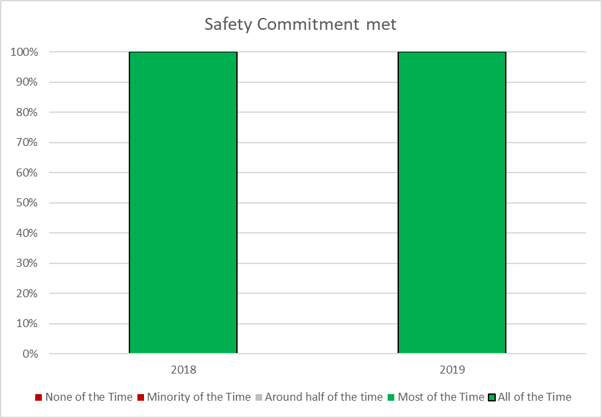
What were the results for each the commitments for 2018 and 2019?
The results for each commitment are as follows.
1. NO SELF-CHECKING
Where pharmacists are directly involved in dispensing, or other processes requiring a high degree of accuracy, a suitably trained and competent member of staff will be readily available in the pharmacy at all times to provide an independent accuracy check. An independent second check improves patient safety by preventing errors.
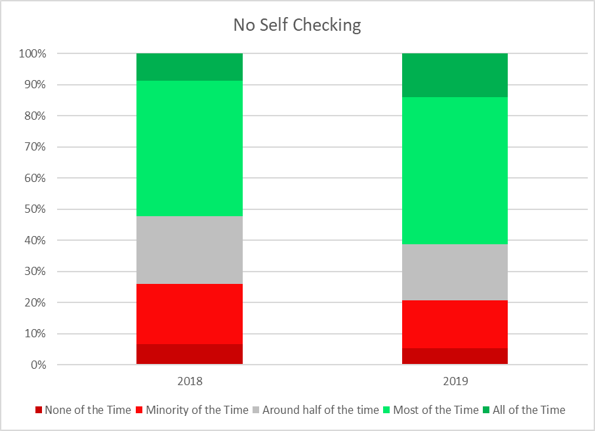
2. SAFE STAFFING
Staffing levels will be sufficient to allow all legal, contractual and regulatory obligations to be met; to meet the workload involved in following standard operating procedures and to carry out other work in accordance with the organisation’s expectations. All staff must be suitably trained and competent to carry out the pharmacy work they are involved in. Providing enough suitably trained staff improves patient safety, quality of care and service.
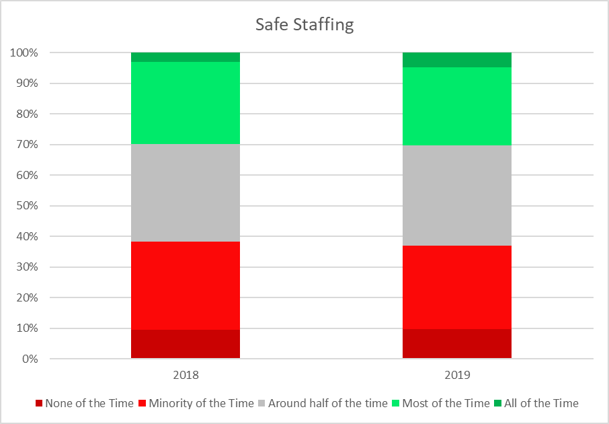
3. ACCESS TO A PHARMACIST
A pharmacist is traditionally one of the few healthcare professionals accessible to patients without an appointment. A pharmacist must be available wherever patients expect immediate access to face-to-face expert advice on any medicines-related matters. The pharmacy owner or employer will meet this expectation by ensuring a pharmacist is available to patients and present in the pharmacy throughout its hours of operation. Pharmacists are the experts in medicines and must be present to ensure that medicines provided to patients are safe and appropriate
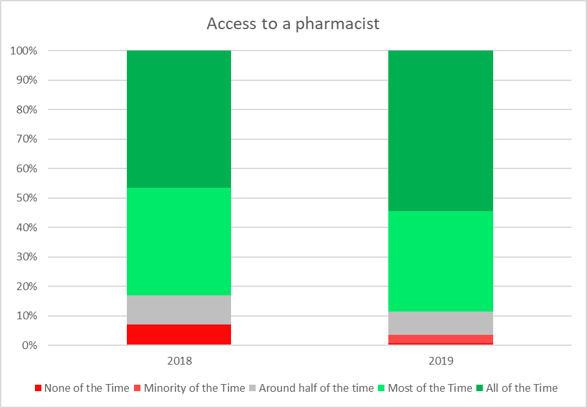
4. ADEQUATE REST
Pharmacists must be able to take at least their statutory and contractual breaks and rest periods, and additional breaks as required to meet their professional obligations. Pharmacists will be enabled to take these without interruption and will not be placed under any direct or indirect pressure to forfeit. To keep patients safe, pharmacists must be alert at work.
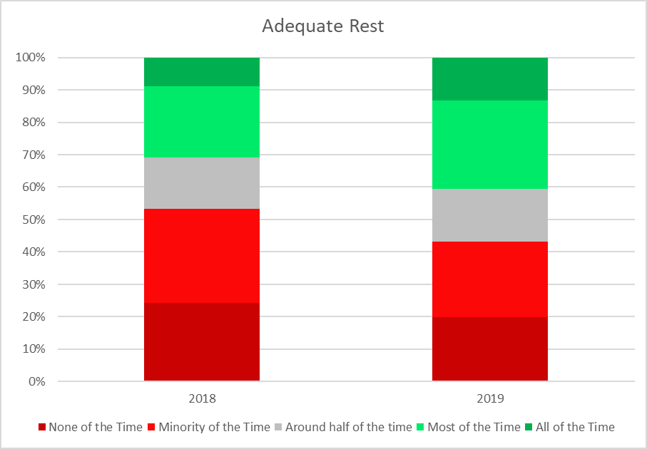
5. RESPECT FOR PROFESSIONAL JUDGEMENT
Pharmacists will be enabled and encouraged to exercise professional decision-making in the workplace, so that patient safety and professional standards can be placed above any commercial or other operational considerations. Organisational and other targets must not inhibit professional autonomy. As health professionals, pharmacists put patients’ health first.
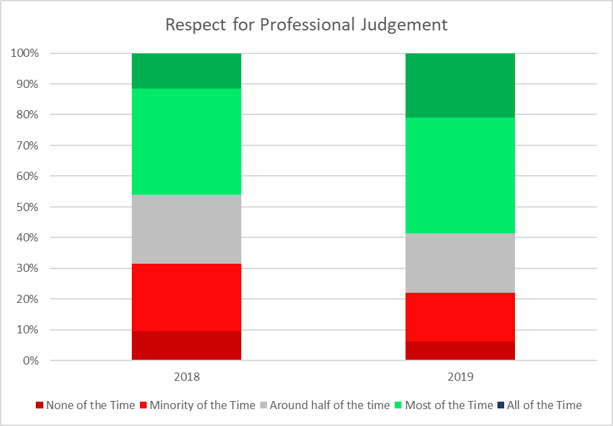
6. RAISING CONCERNS
Pharmacists will be able to raise concerns without reprisal or fear. This will be facilitated by a supportive, open and receptive organisational culture. Issues identified will be promptly addressed and robust and enduring solutions implemented without delay. Concerns at work which could impact on patient safety need to be raised and resolved without delay.
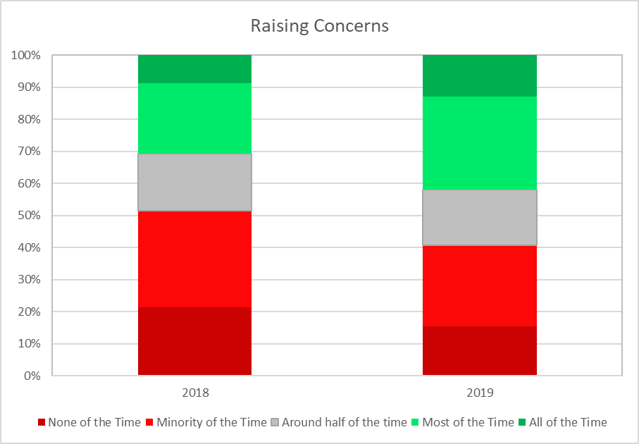
7. PHYSICALLY SAFE
Pharmacists will not have to work in the pharmacy alone and will have access to the necessary support at all times to perform their roles. Risks will be assessed and preventive measures put in place so that patients and staff are safe – and can feel safe. A zero-tolerance approach will be taken to violence or abuse of pharmacists and other pharmacy staff. Pharmacies need to be safe places for patients, pharmacists and everyone.
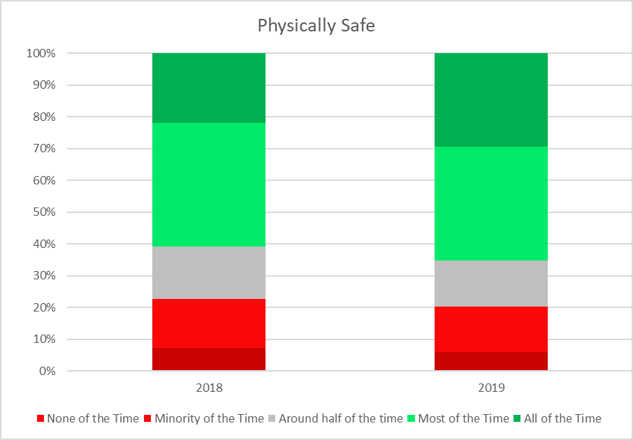
Summary results
The percentage of pharmacists answering either “None of the time; Minority of the time; Around half the time; Most of the time” or “All of the time” to when each of the charter commitments is met is as follows:

What can superintendents and others responsible for safety do?
Those responsible for pharmacy safety should be working tirelessly to get these basic commitments met all of the time in the interest of patients and pharmacists.
The PDA understand that pharmacists may be more willing to disclose their experience and concerns to the independent organisation that represents their interests. Pharmacists know PDA can be trusted to keep their individual responses confidential and they can raise concerns without fear of consequences.
PDA would like to work with pharmacist employers in 2020 to encourage more pharmacists to complete the survey and if appropriate to then share anonymised statistical information with those employers in order to work together for improved safety. As the recognised trade union for pharmacists at Boots, the PDA had provided the superintendent with an advanced copy of the headline results, with over 400 Boots pharmacists completing the survey.
You can find out more and book places at the PDA National Conference 2020 here
Copies of earlier PDA Safety Surveys can be found here